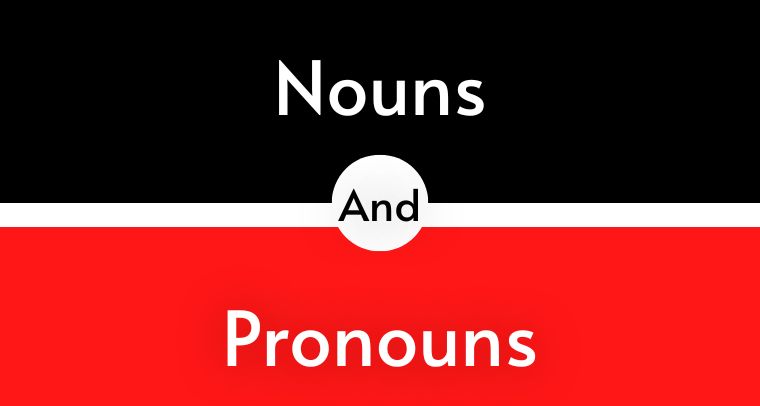Nouns and pronouns are two of the most important parts of speech in the English language. Nouns are words that refer to people, places, things, or ideas, while pronouns are words that can take the place of nouns. In other words, a pronoun can be used in place of a noun. For example, if I say “I’m going to the store,” the word “I” is a pronoun that represents the speaker.
NOUNS
Nouns are basic words in the English language that name people, places, things, or ideas. Every sentence has at least one noun. Here are some examples of nouns:
- person: Mary, teacher, Mr. Jones
- place: home, school, London
- thing: table, computer, book
- idea: love, freedom, justice
Examples of Nouns
- We live in a village.
- My father is a doctor.
- The farmer work in the fields.
- I ate six bananas.
- I have a green pen.
- He is going to school.
- Our country is America.
- It is off on Sunday.
- New York is the city of America.
- We live in London.
PRONOUNS
Pronouns are words that are used in place of a noun or a noun phrase. They are usually shorter and easier to say than nouns. They are used to avoid repeating the same noun over and over again. The most common pronouns are I, me, we, us, you, he, him, she, her, it, they, and them.
Pronouns are used to avoid repeating a noun. For example, if you are talking about a girl named Sarah, you can use the pronoun “she” instead of repeating “Sarah.”
Examples of Pronouns
- My family is educated.
- Her hair is golden.
- They have their own oxen.
- I have my bicycle.
- The children have their ball.
- You gave him a pen.
- He is a farmer.
- They respect their teacher.
- Don’t touch my ring.
- I can help her.
How to Use Nouns and Pronouns Correctly
Nouns and pronouns are two of the most important parts of speech in the English language. Nouns are used to name people, places, things, or ideas, and pronouns are used to stand in for nouns when necessary. Although they may seem similar, you should be aware of some important differences between nouns and pronouns.
There are a few simple rules to follow when using nouns and pronouns. First, a pronoun takes the place of a noun. It refers to either a person, place, thing or idea. Second, a pronoun must agree with the noun it replaces in gender (male or female) and number (singular or plural). Third, some pronouns have different forms depending on whether they are used as the subject, object, or possessive of a sentence. For example, the pronoun “I” is used as the subject, “me” as the object, and “mine” as the possessive.
Additionally, nouns can be either countable or uncountable, but pronouns can only be countable if they refer to a specific object.
The Difference Between Nouns and Pronouns
It is important to know the difference between nouns and pronouns so that you can use them correctly in your writing.
Nouns are words that refer to a person, place, thing, or idea in grammar. While pronouns are word that takes the place of a noun or are assigned by someone. Pronouns are used to avoid repeating the same noun over and over again. They can also be used to make a sentence sound more natural. For example, instead of saying “The dog is brown and the dog is cute,” you can say “He is brown and he is cute.”
Conclusion
In conclusion, the use of nouns and pronouns is an important part of writing. They can help to make your writing more concise and can also make it easier for your reader to understand what you are trying to say. Nouns and pronouns are also a great way to add variety to your writing. By using different nouns and pronouns, you can add interest and variety to your writing.

